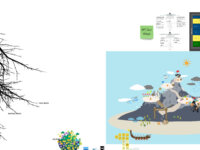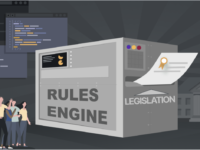In an increasingly digital world, Participa.gov represents our vision for civic participation in political decision-making processes. Participa.gov is the Portuguese Public Administration's centralized, cross-cutting platform for facilitating participatory processes at all levels of government. It employs cutting-edge technology to ensure that citizens can actively participate in policy decision-making via secure and transparent mechanisms that foster trust.
Innovation Tag: Transparency
Aboriginal Children in Australia are 11.5 times more likely to be placed in out of home care then non-Aboriginal Children. Marram-Ngala Ganbu is an Aboriginal designed and delivered Court based program that seeks to provide a more effective, culturally appropriate and just response for Aboriginal families through a court process that enables greater participation by family members and culturally-informed decision-making.
Governments provide a variety of financial help to people in need, with the eligibility/entitlement rules largely defined in legislation. But understanding those rules is incredibly hard, especially when under duress. This project is a community and social sector collaboration on a public, anonymous and interactive service that helps people know their legal rights to services & to an explanation from government, built upon a world first community reference implementation of legislation as code.
The Australian Government - Dept of Finance sponsored a Proof of Concept (PoC) that looked at how Rules as Code (RaC) might be provided as a shared utility that can be used to deliver simpler, personalised digital user journeys for citizens. RaC is the process of taking legislation and regulations and turning them into machine-readable code. It provides many benefits to citizens and government, including greater reuse, less duplication, greater transparency and accessibility of rules.
The Future Mentors programme is a reversed mentoring programme in which a small group of young people mentor a decision maker from their own city about the hopes, dreams, and fears of the young generation regarding the future of their city. The programme is a platform for youth in cities to get into a dialogue with the decision makers and get their concerns and wishes heard. Twenty-six cities around Europe participated in the programme in 2022.
The Anti-Corruption Digital Marketplace (MDA) is the first space developed by a public institution in the history of Mexico, in which public institutions can share free and ready-to-use digital tools, in order to streamline and promote innovation and cooperation among those that need either software, or other digital resources to achieve common goals in addressing corruption. The MDA contains more than 22 tools, some of them have been developed by other national or local level public…
Transparency is a key driver of responsible innovation and improved public trust in governments’ use of data and algorithms. The UK’s Algorithmic Transparency Recording Standard helps public sector bodies provide clear information about the algorithmic tools they use and why they’re using them. The Standard is one of the world’s first policies for transparency on the use of algorithmic tools in government decision making and is internationally renowned as best practice.
"Our Europe, Our Future" is a vast consultation of young people in France and Germany carried out in the framework of the Conference on the Future of Europe. 95,000 young people from both countries expressed their priorities for Europe in two consultations: one carried out on the initiative of the French Ministry of Europe and Foreign Affairs, the other in cooperation with the Franco-German Youth Office and with the support of the German Foreign Ministry.
An Economic Reform Governance Model to reform design and delivery of citizen-and business-centric public services was introduced in 2016. Aim of the Model was to eliminate barriers, ensure transparency, develop digital public services and expand competitiveness through increasing engagement of civil society and businesses in the reform process. Implementing 136 reform initiatives by passing 55 legal acts enabled the government to create more favorable social-economic opportunities for citizens.
Koldchain is the world's lowest-cost, patent-pending, GAVI-endorsed, solution based on thermosensitive polymers that leave distinct patterns upon exposure to temperature shifts. These patterns are interpreted by our smartphone algorithm to detect whether temperature fluctuations have damaged vaccines or other sensitive maternal health biotech products, and thus prevent infant & maternal mortality. The same tech applies to dairy, meat, and many other products where temperature affects quality.






